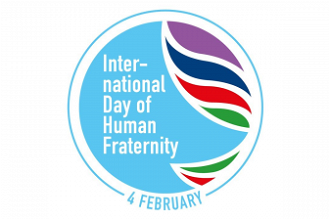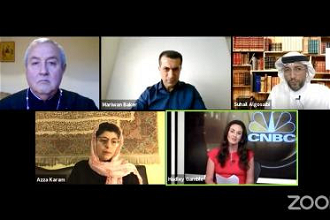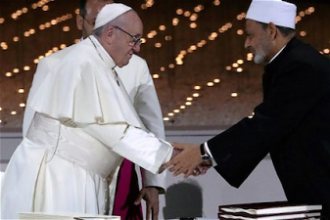Observing Interfaith Harmony Week

Leela Ramdeen
'Building Bridges Across Boundaries' is the theme for the UN's World Interfaith Harmony Week (WIHW) which runs from 1-7 February. This is the second year that the International Day of Human Fraternity will be observed on 4 February. WIHW was established in 2010 "as a way to promote harmony between all people regardless of their faith."
The UN recognises "the imperative need for dialogue among different faiths and religions to enhance mutual understanding, harmony and cooperation among people", and "encourages all States to spread the message of interfaith harmony and goodwill in the world's churches, mosques, synagogues, temples and other places of worship during (this) week, on a voluntary basis and according to their own religious traditions or convictions."
The right of individuals to practise the religion or belief of their choice is enshrined in Article 18 of the Universal Declaration of Human Rights. The right to freedom of conscience and religious belief observance is enshrined in s.4 (h) of our Constitution. TT's Equal Opportunity Act prohibits religious discrimination. In 2011 I wrote a chapter in a book on Religious Diversity in TT, published by Arif Ali, London. The rich diversity of the people of TT, who originated from various parts of the world, is reflected in the multi-religious nature of the nation's society.
The wide range of religions here in Trinidad and Tobago originate eg from Africa, India, Asia, Europe and the Middle East. They include: Catholics, Hindus, Anglicans, Shouter or Spiritual Baptists, Pentecostals, Seventh Day Adventists, Muslims, Presbyterians, Jehovah Witnesses, Methodists, Moravians, Orishas, Jews, Bahai's, members of The Church of Jesus Christ of Latter-day Saints, and Rastafarians - including the Bobo Shanti community.
TT hosts an Inter-Religious Organisation (IRO) which was incorporated by an Act of Parliament - No. 33 of !973. One of its aims is: "To foster the collaboration of all religious Organisations with a view of bringing about the spiritual, intellectual and economic advancement of the people of Trinidad and Tobago." About 25 religious groups are represented on the IRO. TT also has an Ecumenical Council.
To commemorate World Day of the Poor, November 14th, 2021, CCSJ hosted, with Archbishop Charles Jason Gordon, an inter-faith webinar in which key religious figures in TT participated. Too often religious groups work in silos and such gatherings facilitate dialogue and help us to build bridges in order to promote the common good. The theme of the webinar was: "Inter-Faith Dialogue on Poverty Alleviation in Trinidad and Tobago - Witnesses of Hope and Justice." Ira Mathur, President of MATT, was the Moderator. There was a general call by those involved that we should create further opportunities to share information and to cooperate/work together. The proceedings are available on CCSJ's Facebook page. An e-book has been created with the contributions from participants, and these are being serialised in Catholic News.
There is no doubt that faith communities render yeoman service on a daily basis in various fields of endeavour in TT. I am reminded of Gandhi's words: "Our innermost prayer should be that a Hindu should be a better Hindu, a Muslim a better Muslim, a Christian a better Christian. I broaden my Hinduism by loving other religions than my own."
In his encyclical, Fratelli Tutti (FT), on fraternity and social friendship, Pope Francis describes inter-religious dialogue as accompaniment. He says that religions are called to the service of fraternity in the world: "In dialogue and with hearts open to the world, we can establish social friendship and fraternity."
We must all be involved in the construction of a better world. Sadly, as we know, from the various religious conflicts and violent religious extremism around our world today, we have much work to do to restore human fraternity. Pope Francis urges us to accompany one another: "Dreams...are built together. Let us dream, then, as a single human family, as fellow travellers sharing the same flesh, as children of the same earth which is our common home, each of us bringing the richness of his or her beliefs and convictions, each of us with his or her own voice, brothers and sisters all" (FT, 8).
The Dalai Lama has said: "My fundamental belief is that all religious traditions have the same potential to make better human beings, good human beings, sensible human beings, compassionate human beings." We are stronger together, particularly during these difficult times. I urge religious communities, politicians, civil society, academics etc. to promote mutual dialogue/cooperation as we strive to build the common good.
Leela Ramdeen is Chair of the Catholic Commission for Social Justice & Trinidad & Tobago Archdiocese's Ministry for Migrants and Refugees.
Website: http://rcsocialjusticett.org
Facebook: www.facebook.com/ccsjtt


















